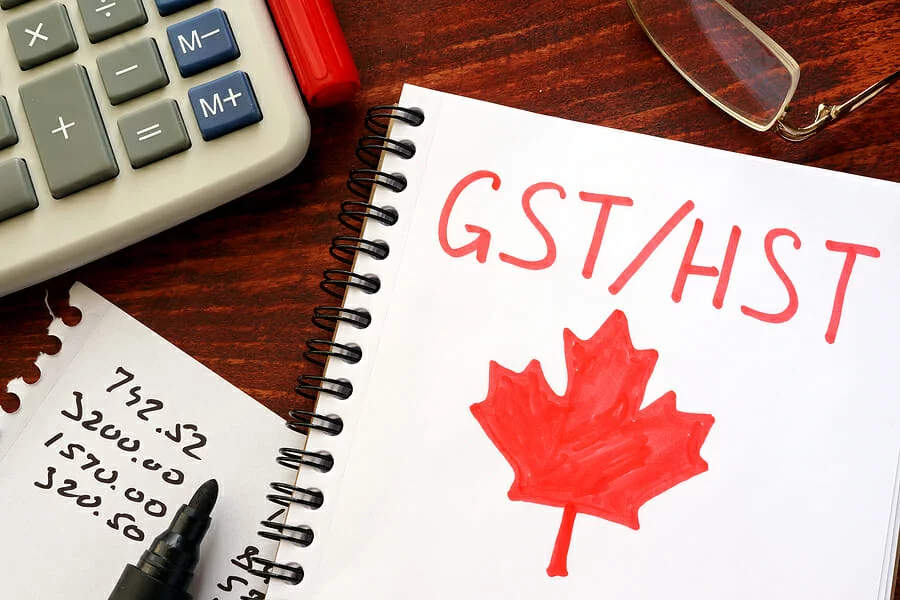
What a Restaurant Owner is Looking for from an Accountant? | Restaurant Accounting in Canada.
In a country as vast and diverse as Canada, each province and territory has its set of laws, regulations, and tax implications. Restaurant owners who excel at creating dishes and providing dining experiences often find themselves overwhelmed by the intricate world of finance. From bookkeeping to tax filings, navigating through this financial maze requires a unique skill set that may not necessarily align with their culinary expertise. This is where “Restaurant Accounting” comes into play.
Restaurant Accounting specialized yet vital service extends beyond number crunching for eateries. It ensures that while chefs devote their attention to perfecting their dishes the financial well-being of the establishment remains strong and compliant. Every misplaced receipt, transaction, or missed tax deadline can potentially spell disaster for a restaurant’s success—regardless of how popular it may be or how rave reviews it receives.
These specialized accounting services cater specifically to the needs of restaurants rather than offering financial management solutions. They possess a comprehension of the challenges faced by the industry such, as fluctuating costs of inventory and the impact of seasonal changes. Canada’s tax landscape is diverse and varies between provinces making it crucial for restaurant owners to stay constantly updated to avoid errors. This is no task, particularly when their main focus is on serving customers and managing day-to-day operations.
Therefore it’s not only about maintaining records; it involves developing a customized strategy specifically tailored to meet the needs of eateries, ensuring not just survival but success in the competitive Canadian market. Restaurant accounting plays a role in the world by providing the stability and foresight necessary for establishments to thrive and expand.
Therefore, while a restaurant’s soul lies within its kitchen, its financial health depends on specialized accounting practices. As we delve deeper into this subject matter, we will explore why having an accountant for your restaurant in Canada for business long-term prosperity.

Why Do Restaurant Owners Require the Expertise of an Accountant?
Running a restaurant is, like orchestrating a performance where the front stage showcases the dance of flavors, exceptional service, and a captivating ambiance. Management, compliance, and strategic planning aspects can be intricate and demand attention. Restaurant owners, who excel at creating dining experiences may find themselves overwhelmed by the intricacies that divert their attention from their core strengths. This is where having a restaurant accounting becomes crucial.
Maintaining Focus on What Matters:
Managing a restaurant successfully requires an unwavering focus on delivering top-notch service quality, culinary innovation, and operational efficiency. Every ingredient sourced, every dish crafted with care, and every guest served reflects the restaurant’s commitment to excellence. Amidst all this dedication to perfectionism in food and service delivery, dealing with accounting tasks can be not. Also, they pose significant obstacles. Bookkeeping reconciliation, payroll management, and adherence to tax regulations demand expertise and undivided attention.
Dealing with the Complexities of Finances:
Restaurants function as ecosystems with financial transactions taking place. The cash flow within these establishments fluctuates due to factors such as inventory management bill settlements, patrons’ payments or credit card transactions, and operational expenses. A lack of tracking and management in the changing financial landscape can hurt a restaurant’s ability to maximize profits, which in turn affects its long-term sustainability and growth.
An accountant’s role goes beyond bookkeeping tasks – they serve as guardians of the restaurant’s financial well-being, ensuring that every dollar is accounted for, all expenses are carefully monitored, and every financial opportunity is capitalized upon.
Achieving Profitability:
Restaurants often find their profitability hindered by untracked expenses and poorly monitored cash flows. An accountant brings their expertise to unravel these complexities and shed light on the measures of profitability. We have witnessed transformations where restaurant owners, armed with accounting insights, have turned ambiguous financial situations into clear pathways to profitability. These insights are not numbers on paper; they act as tools that enable informed decision-making.
Catalysts for Growth:
Every restaurant owner dreams not of surviving but thriving in the industry. Success in the restaurant business is often measured by expansions, opening locations, and offering culinary experiences. However, achieving this success goes beyond serving food and providing excellent service – it is closely intertwined with having a solid financial foundation. Accountants act as bridges that connect achievements to expansions. Equipped with data, forecasting tools, and valuable insights, they empower restaurant owners to make well-informed decisions, minimizing risks and maximizing opportunities.
Achieving the Dream:
If the vision involves expanding horizons, opening locations or even turning an eatery into a franchise, then accounting acts as the unsung lullaby that nurtures this dream. The strategic management of finances, tax planning, and adherence to regulations provided by a professional accountant form the foundation on which restaurants can build their empires. From a corner café to a multi-location eatery, success relies not only on culinary expertise but also on financial wisdom.
Thus, hiring an accountant is like finding a partner who understands the restaurant’s goals, challenges, and opportunities. While the chefs work their magic in the kitchen and the service staff captivates guests on the dining floor, restaurant accountants strengthen the establishment’s stronghold. Every compliance followed meticulously, every tax saved wisely, and every financial strategy optimized silently contributes to a story of accomplishment, sustainability, and growth. In this industry, where challenges abound at every turn, accountants are not merely necessary but crucial allies in crafting a narrative of triumph—one balanced ledger at a time.

What Services Does an Accountant Provide for Restaurant Owners?
Running a restaurant involves more than a love for cooking and serving customers. It also requires management and adherence to regulations. Restaurant owners must enjoy the benefits of Restaurant Accounting services to ensure their businesses are financially sound, efficient, and compliant. The services are as follows:
Corporation Registration and Maintenance:
Starting a restaurant as an entrepreneur begins with registering the business as a corporation. An accountant plays a role in this process by providing expertise in selecting the business structure and ensuring that all legal requirements are met during registration. Additionally, accountants also handle maintenance tasks such, as filings, license renewals, and compliance checks. This allows restaurant owners to focus on running their operations without being burdened by complexities.
Daily Financial Record Keeping:
The financial health of a restaurant is reflected in its transactions. Every time a purchase is made, a bill is settled or a transaction is recorded, it provides information about the state of the establishment. Accountants play a role in this process by managing daily bookkeeping tasks. Their attention to detail when it comes to tracking expenses, bills, and inventory ensures that restaurant owners always have up-to-date insights into their costs and overall financial position. This knowledge is essential for planning and decision-making.
Payroll Management
Managing payroll is another aspect of the environment of a restaurant. The staff members are vital in ensuring customer satisfaction and delivering service. Accountants take charge of payroll management, ensuring that salaries, wages, and benefits are accurately calculated and distributed on time. They also ensure compliance with labor laws and regulations so that restaurant owners can focus on their strengths without worry.
Monthly Accounting
Monthly accounting reports serve as a check-up for the well-being of the establishment. These reports provide information regarding cash flow, profits, and losses. With their expertise in interpreting data, accountants translate these numbers into insights for restaurant owners. Having access to these snapshots of the health of the establishment allows them to identify trends, address challenges promptly, and seize opportunities—a significant advantage in today’s competitive restaurant industry.
GST/HST filing
When it comes to tax filings, like GST/HST (Goods & Services Tax/Harmonized Sales Tax), accountants ensure reporting while navigating through any complexities involved. The complexities of Goods and Services Tax (GST) and Harmonized Sales Tax (HST), in Canada are skillfully handled by accountants. They carefully calculate, collect, and submit these taxes according to the quarterly or annual filings. This meticulous approach helps minimize the risk of penalties and ensures compliance with regulations.
Individual and Corporate Tax
When it comes to individual taxes, accountants excel at managing both obligations. They meticulously plan, calculate, and file taxes while optimizing liabilities within boundaries. In the realm of taxation, accountants serve as advisors who provide valuable insights for financial optimization.
Audit
Restaurant owners often feel overwhelmed when facing an audit. However, accountants step in as allies armed with their expertise and experience. They ensure that financial records are accurate well organized, and compliant, with regulations to facilitate an audit process. Accountants represent the restaurant’s interests by providing clarifications and navigating the audit process efficiently.
In the competitive restaurant industry, an accountant’s role goes beyond financial management. They become allies for maintaining financial stability and ensuring adherence to regulations while promoting growth. Every aspect of their services, ranging from day-to-day bookkeeping to managing audits, is custom-tailored to meet the needs and demands found within the restaurant industry. Throughout the journey of transforming a passion into a lawful and profitable establishment, accountants play an integral role. They skillfully coordinate a blend of effective accounting, compliance, and forward-thinking strategies.

Registration of Restaurant Business
Getting your restaurant up and running in the world of the food industry goes beyond having culinary skills and business savvy. It requires following procedures starting with registering your business. When it comes to establishing yourself in Canada’s thriving scene, you need to make sure your restaurant is not only legally compliant but also tailored to meet its unique operational and financial requirements.
There are options for structuring and registering your business. You can choose to operate as a proprietorship, partnership, or corporation – each option comes with its legal and financial considerations. It’s crucial to have an understanding of the nuances associated with each structure as they affect aspects such as taxation, liability, and management. Choosing your business structure is essential.
Properly registering your restaurant is more than a formality; it lays the foundation for its legal status, operational efficiency, and financial management. It protects against issues and ensures that you comply with regulatory standards. Each province in Canada has its set of requirements and regulations, which means that the registration process for a restaurant business needs to be carried out with precision and expertise.
This is where the role of an accountant becomes crucial. With their understanding of protocols, regulatory norms, and financial implications related to different business structures, accountants provide valuable guidance to restaurant owners during the registration process. They carefully assess the aspects of the restaurant, such as its model, financial projections, and strategic goals to recommend the most suitable business structure.
However, the responsibilities of an accountant extend beyond registration; they also play a role, in ensuring regulatory compliance. They make sure that the restaurant follows all norms, submits documents on time, and maintains its legal status on an ongoing basis. In a landscape where both culinary trends and legal norms are constantly evolving having an accountant guarantees that not only is the restaurant compliant but it can also take advantage of legal and financial opportunities.
Essentially, registering a restaurant business is connected to its long-term success, legal position, and financial well-being. It is a step that demands a combination of knowledge, financial expertise, and strategic vision. In this situation, an accountant plays a role, as a partner who guides the restaurant through the necessary procedures. They lay the foundation for a financially strong establishment that is ready to thrive in Canada’s competitive culinary industry.

Bookkeeping for Restaurants
Bookkeeping in the restaurant industry plays a role in achieving success. Despite the focus on creativity and customer satisfaction, it is important not to overlook the task of managing finances. Bookkeeping serves as the foundation that holds a restaurant together, ensuring its operational integrity. Each entry, record, and reconciliation contributes to the health and sustainability of the establishment.
So, what exactly does bookkeeping for restaurants entail?
It encompasses aspects and transactions that provide a comprehensive overview of the restaurant’s fiscal well-being. This includes accounting, tracking sales and purchases, reconciling bank statements, and managing accounts payable and receivable. By recording and managing these elements, valuable insights can be gained for optimizing operations efficiency, financial planning, and strategic growth.
In this landscape of restaurant finance management, accountants go beyond crunching numbers; they capture the heartbeat of the establishment’s finances. Real-time tracking of sales allows for insights into revenue generation, customer preferences, and seasonal trends. All information for making informed business decisions. The process of purchasing items and keeping track of the associated costs is meticulously documented, providing opportunities to optimize expenses and improve profitability.
How is a restaurant accounting bookkeeping service helpful?
In the evolving restaurant industry, it cannot be emphasized enough how crucial it is to maintain thorough and up-to-date financial records. These records go beyond reflecting the present financial status of the restaurant; they also serve as predictive tools that provide insights into future trends, challenges, and opportunities. Each entry in the book contributes to a picture that offers an understanding of the restaurant’s financial well-being and operational efficiency.
Maintaining records enables decision-making in various aspects such as menu pricing, inventory management, and staffing. It ensures that restaurant owners have the tools, data, and insights to make decisions based on reliable information. Accountants play a role as custodians of this yet essential process. With their expertise in managing numbers and interpreting them effectively, accountants ensure that the restaurant’s bookkeeping accurately reflects its position while also complying with requirements and providing strategic foresight.
Accurately tracking sales is crucial to ensure that revenue recognition is precise. Managing expenses is important to safeguard profitability and prevent erosion. Optimizing cash flow, through bank reconciliation helps keep things running smoothly while effectively managing accounts receivable ensures that the restaurant’s financial transactions are timely and accurate.
With the emergence of technologies and software, accountants now incorporate technology into bookkeeping enabling real-time tracking, accuracy, and compliance. This transforms bookkeeping from a task into a powerful tool that equips restaurant owners with actionable insights, financial clarity, and strategic guidance.
Therefore, bookkeeping for restaurants combines precision, expertise, and strategy. It guarantees that amidst the delights and customer experiences, the financial integrity of the restaurant remains strong and compliant with regulations while poised for growth and expansion. In the hands of an accountant, bookkeeping goes beyond mere legal obligations; it becomes a strategic advantage that propels the restaurant toward financial success, stability, and further growth.

Payroll in the Restaurant Industry
In a restaurant setting the heartbeat of the operation often lies within its team. From chefs creating masterpieces to servers ensuring an exceptional dining experience, each member plays a vital role, in delivering outstanding service. Payroll serves as a component providing a system to ensure team members are paid accurately and on time.
So what is payroll?
It encompasses a process that involves calculating, distributing, and recording employees’ compensation. It goes beyond issuing salaries. Includes various adjustments such as benefits, deductions, and bonuses. This ensures that each employee’s financial reward aligns with their contribution and complies with contractual obligations.
How does payroll work in the case of restaurants?
In a restaurant environment where roles are diverse like the range of menu offerings, managing payroll becomes a nuanced task. Each salary reflects factors like job responsibilities, hours worked, and additional compensatory elements. This requires calculation and accurate record-keeping. Adjustments to salaries may be necessary to account for variables like overtime pay tips received by staff members or bonuses earned. Conversely, deductions such as taxes or contributions towards benefits also need to be taken into consideration to maintain payroll accuracy.
Managing payroll is more than a duty; it reflects the restaurant’s commitment to its team members’ well-being and satisfaction. It showcases the integrity of an establishment, making sure that the restaurant team, which forms the backbone of the business, is fairly promptly and accurately rewarded. This approach creates an environment that promotes motivation, dedication, and a commitment to excellence. Learn more about Managing payroll.

Filing GST/HST
The tax system in Canada is known for its structure and strict regulations. It introduces two concepts, Goods and Services Tax (GST) and Harmonized Sales Tax (HST) which play a crucial role in the financial management of businesses, including restaurants. These taxes do not generate revenue for the government. Also, holds significant importance in fulfilling a restaurant’s financial and legal obligations. Understanding and effectively managing GST/HST is essential to ensure compliance and financial stability for restaurant owners.
GST/HST Applicability
GST is a tax that applies to the majority of goods and services provided in Canada. HST on the other hand, is a combination of GST and provincial sales tax applicable in provinces that have synchronized their provincial sales tax with the GST. For restaurants, this means following a process of calculating, collecting, and remitting these taxes based on the prevailing rates and regulations. Every meal served, and every beverage poured involves tax calculations that contribute to the legal and financial landscape of the restaurant.
GST/HST Complexity
The complexities involved in handling GST/HST are amplified by the transactions that occur during restaurant operations. Each item listed on the menu or service provided carries implications, for taxation. Efficiently and accurately calculating and collecting GST/HST is crucial for restaurants to maintain integrity and legal compliance. It goes beyond being an obligation; it serves as a strategic element.
Calculating GST/HST
To calculate GST/HST, restaurants need to understand the rates, eligible goods and services, and any exceptions that may apply. The tax is often included in the price paid by consumers. It is the restaurant’s responsibility to collect and remit it to the government. This requires record keeping, precise calculations, and timely submissions to avoid penalties and ensure adherence to requirements.
Frequency of Filing GST/HST
The frequency of filing GST/HST depends on factors such as the restaurant’s revenue, and the amount of tax-specific business circumstances. Filing frequencies can be monthly, quarterly, or annually each with its thresholds and requirements. Restaurants need to customize their approach to ensure compliance with these filing frequencies. Adhering to the filing frequency is not a legal requirement but also a strategic tool, for managing cash flow. By meeting tax obligations without hindering financial fluidity, restaurants can mitigate risks associated with non-compliance while maintaining their reputation and legal standing intact.
Thus, successfully managing the complexities of GST/HST requires a combination of expertise, financial knowledge, and strategic thinking. Restaurant owners, who are often focused on the day-to-day operations of their businesses, can find handling GST/HST to be quite challenging. However, by engaging accounting services that specialize in navigating this landscape, restaurants can ensure not only compliance but also the optimization of their tax responsibilities. This careful management of GST/HST becomes a step in the balance between flavors and finances for restaurants guaranteeing both a delightful dining experience and adherence to legal requirements.

Individual and Corporate Tax Considerations for Restaurants
For restaurant owners, the tax system can be divided into two categories; corporate taxes. Each category has its set of norms, obligations, and implications. Individual taxes are based on the owner’s income, benefits, and deductions. They are customized to factors such, as income brackets, applicable rates, and eligible deductions. These taxes reflect the owner’s status by combining the restaurant’s income with any sources of income they may have.
On the other hand, corporate taxes pertain to the restaurant as an entity. They are calculated based on the restaurant’s income after accounting for deductions, allowances, and exemptions. Corporate taxes indicate how well the restaurant is performing financially and how it complies with tax regulations.
The importance of timely tax filings cannot be overstated in this dual tax landscape. Accuracy is achieved through record-keeping, calculations, and strategic tax planning. It ensures that both the restaurant and its owner comply with requirements and regulations while minimizing risks associated with compliance penalties or audits. By filing taxes, a restaurant protects its reputation and legal standing.
In a restaurant environment, where the daily demands of operations often take priority, it can sometimes be easy to overlook tax filings. However, it’s important to remember that meeting tax deadlines is not a requirement but also demonstrates the restaurant’s commitment to financial and operational discipline. It shows that the restaurant is aware of its obligations and can balance excellence, in operations with compliance.
Understanding and managing both corporate tax responsibilities requires a combination of knowledge, financial expertise, and strategic planning. Restaurant owners must not only grasp the tax regulations but also strive to optimize their tax liabilities. This involves planning where eligible deductions, allowances, and exemptions are thoroughly considered to ensure that the restaurant’s tax liability is not only compliant but also optimized for its benefit.
Audits play a role in maintaining legal compliance, and their frequency and intensity can vary based on various factors. The size of a restaurant its revenue volume and the amount of taxes paid all influence the likelihood of being audited. Larger establishments or those with revenue streams often face scrutiny from tax authorities or third-party entities.
The probability of an audit is not only determined by a restaurant’s metrics but also by its adherence to tax regulations, effectiveness in record keeping, and transparency in transactions. Restaurant owners often find themselves navigating a landscape balancing needs with the requirement for meticulous financial record keeping.
This is where accountants go beyond their role as custodians and become allies. In case of an audit, accountants become the frontline defense for restaurant owners as they skillfully navigate through the corridors of scrutiny. With their understanding of the restaurant’s situation and regulatory standards, accountants ensure that the audit process is not only handled accurately but also optimized to demonstrate the establishment’s commitment to legal and financial protocols.
Accountants take charge of the collection, organization, and presentation of financial documents turning what could be an overwhelming task, into a structured and manageable process. They ensure that every invoice, transaction, and financial record is presented clearly, highlighting the restaurant’s commitment to integrity and adherence to requirements. Accountants not only portray the restaurant’s story but also protect the owner’s interests during the audit procedure. They offer explanations provide insights and navigate the audit with transparency, accuracy, and alignment with the restaurant’s financial goals.
Therefore, audits may be seen as experiences; however, they can serve as opportunities to showcase the restaurant’s financial management, compliance with regulations, and operational excellence. In this journey lies a role, for accountants who strive to ensure that every figure, record, and financial narrative reflects the restaurant’s dedication to maintaining sound finances and upholding legal obligations. Within these audits lies an untold tale of preparation, effective presentation skills, and unwavering integrity.

How do Accountants Charge?
Accountants and accounting firms have come up with pricing strategies to meet the requirements and preferences of restaurant owners. One common way of billing is based on Full Time Equivalent (FTE) and hourly charges, which provides flexibility and scalability that suits restaurants with varying accounting needs.
On the other hand, accounting firms often offer charges, making it easier for restaurant owners to predict and manage their accounting expenses. This brings stability and operational convenience for them. Additionally, clients can choose from packaged services to a subscription model. These packages are customized to suit the needs of each restaurant offering a bundle of accounting services at a subscription fee.
This diverse range of pricing structures ensures that restaurants of all sizes can access accounting expertise while keeping costs aligned with their scale and financial capabilities. Each pricing model is distinct yet flexible and designed in a way that makes accounting services easily accessible and seamlessly integrated into the restaurants’ operations and financial landscape.

Yes it's a Myth: That only CPAs can do your Accounting Work
One of the believed misconceptions, in the field of restaurant management is that having a Certified Public Accountant (CPA) oversee all accounting functions is necessary. While it is true that the expertise of a CPA holds value, it is not always mandatory for every aspect of managing a restaurant’s finances. In reality, many accounting and bookkeeping tasks can be effectively handled by accountants or bookkeepers making financial management accessible and cost effective.
The main difference lies in the area of auditing. CPAs are particularly valuable when it comes to audit procedures offering expertise and regulatory insights. However, audits are not activities in a restaurant’s cycle; they are occasional yet significant events. This brings us to the point of cost efficiency. Hiring a CPA firm for all accounting tasks can be quite expensive for small-to-sized restaurants.
Accountants and bookkeepers offer an alternative. They possess the skills needed to manage transactions, bookkeeping, payroll, and other accounting tasks accurately and professionally. They play a role, in managing the finances of the restaurant ensuring that the financial records are accurate, compliant, and aligned with the business goals.
In today’s changing environment, many accountants and bookkeepers collaborate with CPA firms. This collaboration helps bridge the gap between day-to-day accounting needs and specialized audit requirements. Restaurants can benefit from having an accountant who provides cost-effective services. When an audit is required, the accountant can work with a CPA firm to ensure that it is conducted with precision and compliance.
This flexible and collaborative approach challenges the notion that a CPA is always necessary. It introduces a financial management model that’s adaptable cost-effective and aligned with the evolving needs of restaurant businesses. By adopting this approach, restaurant owners can focus on improving their offerings and customer service experience while having confidence in financial management without constant involvement from a CPA. This balanced approach combines cost efficiency with expertise making quality financial management accessible and affordable for restaurants of any size or scale.
How we can help you?
Our dedicated team is committed to providing solutions that specifically cater to the needs of restaurant owners. We have an understanding of the regulatory landscape, in the culinary world and our services are designed to not only ensure compliance but also offer strategic advantages. Our team consists of accountants and advisors who work closely with restaurant owners focusing on optimizing performance ensuring regulatory adherence and fostering sustainable growth. We go beyond accounting services by becoming your partner providing valuable insights, expertise, and personalized assistance that convert numbers into actionable business intelligence. This will help your restaurant soar to levels of success and profitability.
